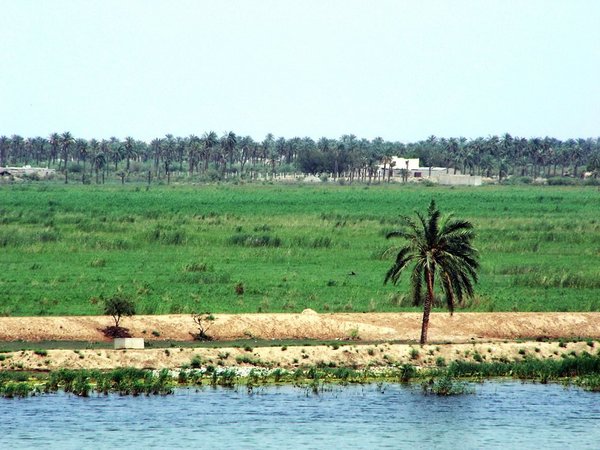 Read this article in French
Read this article in French- Share this article
- Subscribe to our newsletter
SDC’s Blue Peace prevents conflicts and contributes to greater stability
Water scarcity is a growing problem in many parts of the world. Population growth, environmental pollution and climate change are putting greater pressure on water resources in many areas. Competition for precious water resources can aggravate existing conflicts and destabilise entire regions.
Switzerland's Blue Peace initiative promotes water diplomacy in combination with development cooperation and brings countries together that share river, lake or groundwater resources. It supports countries in managing shared resources peacefully and sustainably, drawing on Switzerland's own experience in cooperating with neighbouring countries.
To give an example, Switzerland works with the International Commission for the Protection of the Rhine, which aims to reconcile various interests relating to water use and the protection of water resources in the Rhine basin. Switzerland is therefore a credible actor, as it contributes to managing transboundary water resources shared with its neighbours.
Water shortages fuelling many conflicts
Since the turn of the century, the number of violent conflicts around the world has increased significantly and many conflict-prone areas are also the driest. A World Economic Forum study from 2017 shows that nearly 50 of these violent conflicts have, to a large extent, been fuelled by water shortages. Water stress and violent conflicts are causes and drivers of global migration.
Switzerland has been committed to water issues since the early days of its development cooperation work, recognising that scarce water resources which cross national borders are a potential source of conflict and require comprehensive management. Since the 1990s, many of Switzerland's water projects have focused on this particular issue. Partner countries have always viewed Switzerland as a neutral, genuine actor that is not there to advance its own geopolitical interests. And Switzerland has increasingly shifted from providing mere support to playing a facilitator role, resulting in the launch of Blue Peace about ten years ago.
How does the SDC's Blue Peace initiative work – and where?
Blue Peace brings together key decision-makers and government representatives to discuss and negotiate the use of shared water. The long-term objective is for countries to enter into agreements ensuring access to and the sustainable preservation of transboundary water resources. A further aim is to help countries resolve conflicts of interest over water peacefully and assist them in undertaking the necessary preliminary work. Thorough research needs to be carried out before parties enter into negotiations on water resources. Staff and organisations with the necessary expertise are also needed to draw up and implement agreements. Blue Peace helps countries build capacity in these areas.
Blue Peace currently operates in three priority regions. In the Middle East, it is currently supporting work relating to the Yarmuk and Tigris Rivers, which flow through Syria, Jordan and Turkey, and Syria and Iraq, respectively.
In Central Asia, Blue Peace work is focused on the Amu Darya and Syr Darya rivers, which serve as lifelines for Kyrgyzstan, Tajikistan, Uzbekistan, Kazakhstan and Turkmenistan.
In West Africa, Blue Peace is assisting Senegal, Gambia, Guinea and Guinea-Bissau in developing a strategic plan for the Gambia River.
What benefits has the Blue Peace Initiative brought to affected communities?
Firstly, it delivers the immediate and short-term benefit of easing conflicts by ensuring that scarce water resources remain available and are not depleted further.
However, Blue Peace will have an impact and yield the greatest benefits over the long term. It is essential for water resources to be managed peacefully and, above all, preserved to ensure that households, farms, businesses and, of course, the natural environment in all the countries concerned have adequate supplies of water in future. Blue Peace therefore indirectly prevents conflicts, increases stability and improves the basic conditions needed for long-term prosperity.
Christian Frutiger, Deputy Director-General, Swiss Development Cooperation (SDC), Bern, Switzerland
More information:
Guidelines on Water 2022-25
Blue Peace





Add a comment
Be the First to Comment